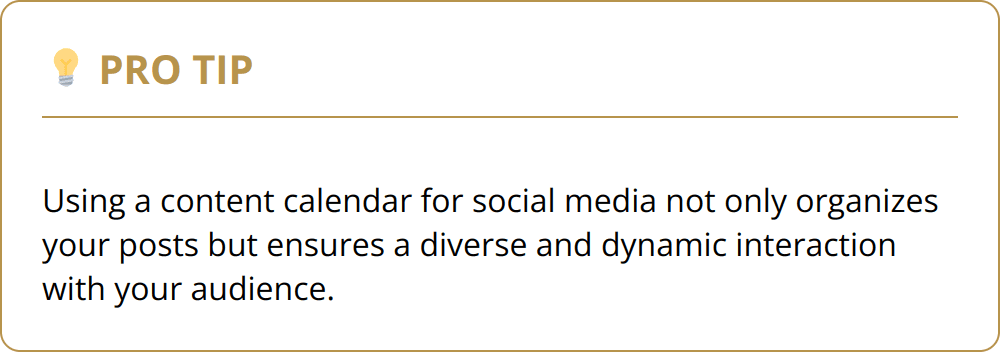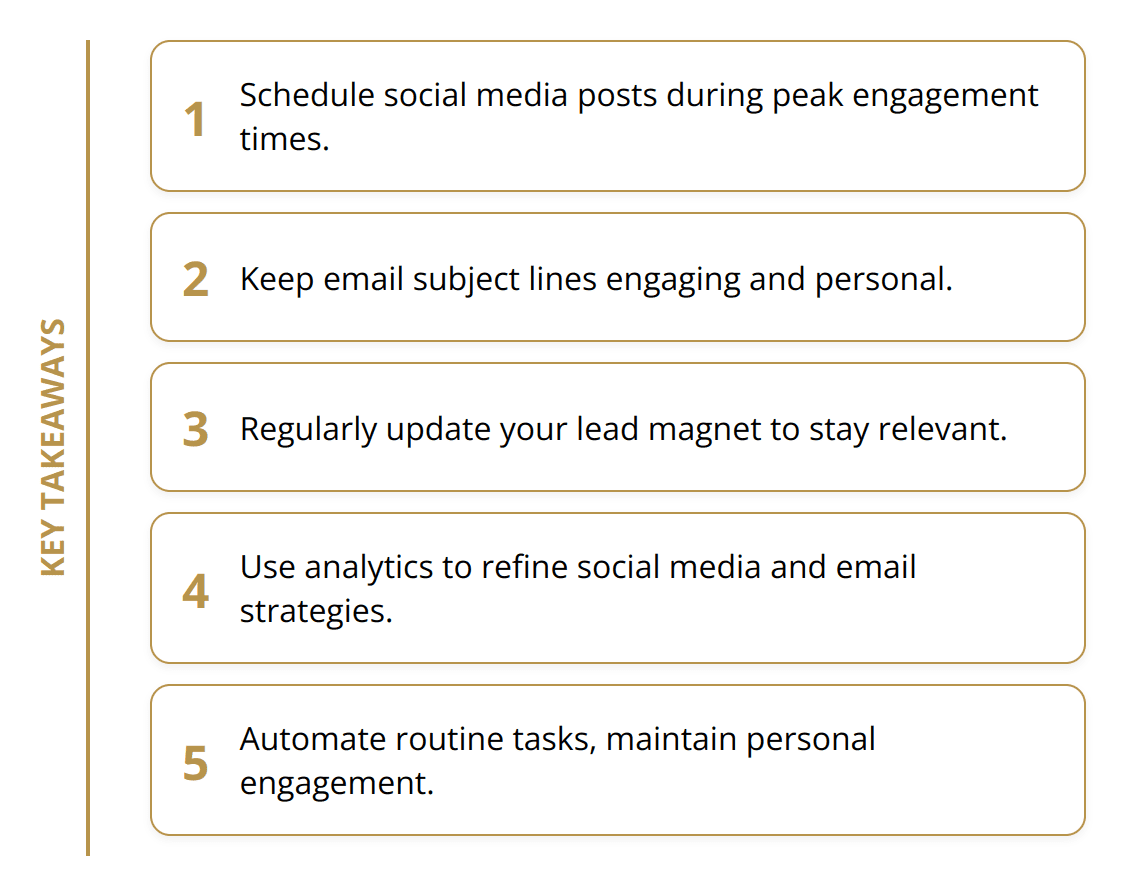At Beverly Hills Publishing, we understand the value of your time as an author. Automating your book marketing can free up precious hours, allowing you to focus more on what you do best: writing.
In this post, we aim to guide you through selecting the right automation tools, setting up an effective marketing funnel, and leveraging social media automation to enhance your book’s visibility. Our goal is to help you find the perfect balance between automated efficiency and the irreplaceable personal touch that connects you with your readers.
Automating Book Marketing Tools
In the landscape of book marketing, the right automation tools are not just beneficial; they are indispensable. The key lies in selecting tools that streamline your workload without compromising the quality of your engagement with your audience.
Social Media Management: A Game Changer
Social media platforms are battlegrounds for attention—yours and your audience’s. Managing multiple accounts, ensuring consistent posting, and engaging with followers can become overwhelming. That’s where social media management platforms come in. They allow you to schedule posts across various platforms, track engagement, and analyze your social media strategy’s effectiveness. Tools like Buffer and Hootsuite stand out for their user-friendly interfaces and comprehensive features. They enable you to maintain a robust online presence, ensuring your book reaches a wide audience without requiring round-the-clock attention.
The Power of Email Marketing Automation
Email marketing remains one of the most direct pathways to your readers. An effective email marketing automation service simplifies list management, automates campaign sequences, and provides analytics to refine your strategy. Services like MailChimp and ConvertKit are favored for their ease of use and advanced features, such as A/B testing and integration with other marketing tools. By automating email campaigns, you ensure a steady flow of communication with your subscribers, nurturing them from interested readers to loyal fans.
Scheduling Content Efficiently
Creating content is one thing; publishing it efficiently is another. Content scheduling tools help you plan your content strategy in advance and ensure regular updates without manual intervention. WordPress plugins like CoSchedule not only allow you to schedule blog posts but also social media content related to those posts. This ensures your content marketing efforts are synchronized and consistent, driving more traffic to your site and keeping your audience engaged.

In summary, automating your book marketing does not mean setting your efforts on autopilot and forgetting about them. The right tools can save you time, yes, but they also offer insights into what works and what doesn’t, allowing you to constantly improve your approach. Smart automation, coupled with strategic manual efforts, is the winning recipe for success in the crowded book market.
For further reading on effective book marketing strategies, consider exploring digital book marketing trends and how to enhance your networking. These resources provide in-depth analysis and actionable advice to complement your automation tools, ensuring you make the most of your book marketing efforts.
Automating Your Funnel
The foundation of marketing success in book publishing lies in an effective automation funnel. This strategy is pivotal in transforming prospects into loyal readers and buyers. Integrating a captivating lead magnet, seamless email sequences, and data-driven adjustments forms the backbone of this approach.
Enticing Readers with Your Lead Magnet
A lead magnet needs to be irresistible. It must offer value so compelling that your audience can’t help but exchange their contact information for it. Ebooks, exclusive chapters, and webinars are powerful incentives. The goal is to align the content of your lead magnet closely with the subject of your book. This relevance ensures that the leads you collect are genuinely interested in your work.
When designing your lead magnet, focus on solving a specific problem or providing unique insights. An ebook on “Five Unconventional Strategies to Improve Writing Skills” for an author targeting aspiring writers can be tantalizing. The success of your lead magnet is measured by the conversion rate, aim for a target that exceeds industry benchmarks.

Streamlining Communication with Email Sequences
Upon capturing leads, the next step is nurturing these prospects through well-crafted email sequences. Automation tools allow for the scheduling of these emails, ensuring timely and consistent communication without daily input. Each email should offer value, whether through tips, industry insights, or additional free content related to your book’s theme.
The sequence typically begins with a welcoming email, followed by several value-adding messages, and culminates in a soft pitch of your book. Remember, the focus is on providing value, not just selling. Tools like MailChimp and ConvertKit are excellent for managing these sequences, offering features like tag-based subscriber segmentation to tailor the content precisely.
Data-Driven Optimization
A crucial aspect of your marketing funnel is ongoing analysis and optimization. Monthly reviews of email open rates, click-through rates, and conversion metrics provide insights into what resonates with your audience—and what doesn’t. Use this data to tweak your emails and lead magnet. Maybe your initial emails aren’t engaging enough, or perhaps the lead magnet isn’t compelling. Adjust based on performance data for continuous improvement.
Remember, the most effective automated marketing funnels are those that evolve based on audience interaction and feedback. Tools like Google Analytics can give you a broader perspective on how your funnel is performing from the top of the funnel (lead magnet) through to the final email sequence. It’s this evolution, based on concrete data, that helps turn a good marketing funnel into a great one.
- Keep email subject lines engaging and personal
- Regularly update your lead magnet to keep it relevant
- Monitor key performance indicators monthly for insights
Transitioning from lead generation to nurturing and conversion with an automated marketing funnel is not just efficient; it’s effective. Through offering undeniable value, maintaining consistent and meaningful communication, and using data to refine your approach, you can build a marketing funnel that turns interest into sales, systematically.
Maximizing Social Media
Social media is a goldmine for authors aiming to market their books effectively. Automation in this realm has evolved from a nice-to-have to an absolute necessity. With the right strategy, authors can ensure their books reach the widest possible audience without sacrificing countless hours to manual posting and engagement. This chapter provides concrete steps to leverage social media automation fully, so let’s dive in.
Optimize Your Social Media Calendar
The first step towards social media automation success is creating a comprehensive posting schedule. Scheduling tools like Buffer and Hootsuite are invaluable here, enabling authors to plan their posts across multiple platforms weeks or even months in advance. Consistency is key in social media; regular updates keep your audience engaged and informed about your book. However, it’s not just about frequency; timing matters too. Use insights from your social media platforms to determine the best times to post, ensuring your content receives maximum visibility.
Engage Authentically, Automate Wisely
While automating posts is efficient, engagement still requires a personal touch. Automated responses can feel cold and impersonal, but tools now exist that strike the right balance. For instance, using chatbots for initial inquiries on Facebook can help filter conversations before you step in personally. The goal is to automate the routine without removing the human element that connects you to your audience. Always jump into conversations when specific questions or comments arise; genuine interaction can’t be fully automated and is essential for building strong reader relationships.
Analytics Are Your Best Friend
To refine your social media strategy, delve into analytics regularly. Platforms like Instagram and Facebook provide detailed performance analysis, showing which types of posts garner the most engagement or reach. This data is crucial for understanding your audience’s preferences, allowing you to tailor your future content more effectively. Additionally, tools like Google Analytics can track how social media traffic impacts your website or blog, providing a more comprehensive view of your marketing funnel’s effectiveness.
Here are three actionable tips to keep in mind:
- Schedule posts for the best engagement times specific to each social media platform.
- Use analytics to adjust content types and posting frequency based on audience response.
- Automate routine tasks but keep engagement personal; your authentic voice matters.
By strategically scheduling posts, ensuring personalized engagement, and using analytics to fine-tune your approach, you can maximize your book marketing efforts on social media. Remember, while automation tools are powerful, they serve to amplify, not replace, the authentic connection between you and your readers.

For more insights on leveraging digital trends in book marketing, explore our guide on digital book marketing trends.
Wrapping Up
Marketing your book effectively in today’s digital age requires a judicious blend of automation and personal touch. At Beverly Hills Publishing, we’ve seen firsthand that automation maximizes your marketing efforts, allowing you more time to dedicate to your craft. However, it’s crucial to remember that the essence of connection with your readers lies in the personal, authentic interactions that can’t be automated. Finding the right balance is key to cultivating a loyal readership and expanding your reach.

Continuous learning and adaptation are at the heart of leveraging automation tools efficiently. The digital landscape evolves rapidly, and so do the needs and preferences of your audience. Staying abreast of the latest tools, analytics insights, and marketing strategies will enable you to refine your approach, ensuring your efforts remain impactful and relevant. Encourage experimentation with new tools while keeping a close eye on the data to guide your decisions.
We encourage all authors to embrace automation in their marketing strategies. It’s a powerful way to streamline your processes and make your marketing efforts more effective. However, remember that automation is a tool to enhance, not replace, the genuine connection with your audience. Your unique voice, insights, and engagement with readers are what will ultimately set your book apart in a crowded marketplace.
Beverly Hills Publishing is committed to revolutionizing author success by marrying strategic branding with innovative publishing solutions. By taking advantage of our expertise, authors can not only publish their work but also strengthen their brand presence and become recognized authorities in their fields. For those looking to make a significant impact with their books, we invite you to learn more about how we can help you transform your passion into success by visiting Beverly Hills Publishing.
Embracing automation in book marketing doesn’t mean losing the personal touch that connects you with your readers. It’s about using the tools available to extend your reach and engage more effectively, freeing up your time to focus on what you love most — writing. With the right strategy, continuous learning, and a partnership with Beverly Hills Publishing, you can achieve unparalleled success in your author journey.















































































































































































































































